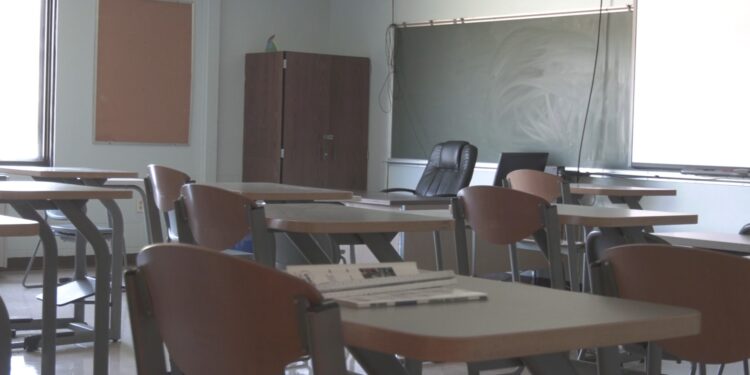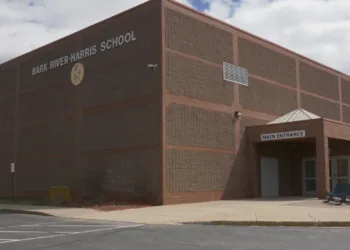LANSING, Mich. (WZMQ) – As students make their way back into the classroom, the Department of Education (MDE) is focused on continuing its top 10 strategic education plan by improving student literacy rates, securing more teachers, and the physical and socioemotional health of students.
The education budget for the upcoming school year has continued funding for free breakfasts and lunches, with last year’s providing more than 10 million additional breakfasts and 15 million additional lunches. The 2025 fiscal year budget also expanded dollars for preschool access and secondary school programs like early middle college and dual enrollment.
Michael Rice, the State Superintendant said that while certain things have improved, others need to be leaned into.
While the pandemic brought an increase in funding and resources, students have struggled to recover. School districts all over the state are still struggling with attendance, chronic absenteeism, and reading engagement. With so many devices and activities breaking up students’ attention Rice said they are working hard to engage students in reading based on their interests, and meeting them where they are at.
“For young people to realize that reading is not something you’re told to do, but something that you want to do really takes them from reading dutifully to reading as a lifelong passion.”
Rice said bills are waiting for a vote in the House of Representatives that would instate mandatory screening in schools for dyslexia to make sure students have access to all the resources they need for success.
Rice said that they’re excited and ready to welcome kids back to the classroom, but they’re still dealing with teacher shortages across the state.
To address the shortages in rural areas, MDE launched rural credentialing hubs. It’s a $15 million program for universities to use flexibly to help prospective teachers and people who need help getting their permanent credentials.
Rice said a part of their goal is to seek out students at a young age who are interested in staying close to home to teach. The program also focuses on support staff or paraprofessionals looking to continue their education, to make getting a credential easier.
It’s all a part of a larger plan passed by the legislature to assist teachers on every step of their journey, from scholarship and student teaching stipends, to loan repayment and programs to help veteran teachers further their education.
“The reality of the needs in the UP are related to, but also distinct from, the needs at the southern border of the state. We’re under no illusions that we’ve arrived. We know that we have miles to go before we sleep.” Rice said. “We know we need more helping professionals. we need them in the UP. We need them in the northern lower. We need them in the urban areas and in the suburban areas.”
For the first time in 4 years, the funding for student mental health resources was cut, and by more than 70%. Michigan currently has over $400 million budgeted for student mental health and safety resources, but with the start of the new fiscal year in October, that budget item will be cut by $300 million.
Rice explained that before 2019, the education budget had never included dedicated funds for mental health. Throughout the pandemic, the legislature made progress in increasing the money through federal COVID funding, but this school year the per-pupil mental health and school safety grants will only see $26 million state-wide.
In the past 5 years, over 1000 new helping professionals were hired with that funding. That includes social workers, guidance counselors, nurses, and school psychologists.
Rice says those new jobs are secure, but they won’t be able to continue expanding those helping professional positions as planned.
Rice said the school board has introduced a resolution calling for the legislature to make a budget amendment and reinstate a portion of the funding. With lawmakers returning this month, they’re remaining hopeful some changes could be on the way.










